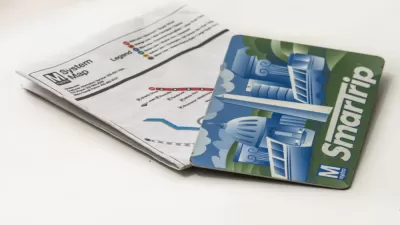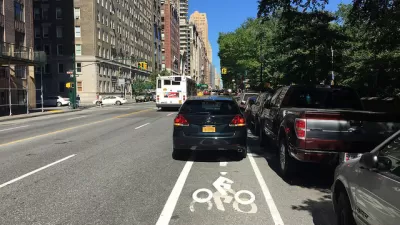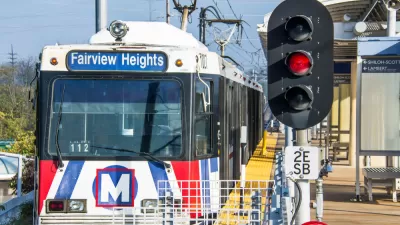A recent post on Mobility Lab explains some of the challenges developers encounter when creating the multi-modal trip planner apps of our dreams.
Trevor Gerhardt, a developer with Conveyal who works with OpenTripPlanner, shares some of the problems that arise for plotting multi-modal routes on mobile apps.
Gerhardt introduces the difficulties in multi-modal trip planning by explaining the process by which his team has refined the process for the Washington, D.C.-focused app CarFreeAtoZ: "In the backend of CarFreeAtoZ, we take our search a step further and use subjective values to rank each option based on more than just time. This allows us to tailor options to each commuter as well as the full community in aggregate, instead of just showing the fastest possible trip by default. It also creates a split where we determine which routes to prune by objective measures and which to score and re-rank with subjective ones."
Gerhardt goes on to explain that such a process creates several categories of challenges, including "bike-to-transit pushing out walk-to-transit," "longer transit wait times than ride times," and "when to hide drive-to-transit results." Gerhardt also explains the CarFreeAtoZ approach to each of these challenges and solicits feedback on the routes provided by that system.
FULL STORY: 3 Ways Multi-Modal Travel is Tricky for App Developers

Coming Soon to Ohio: The Largest Agrivoltaic Farm in the US
The ambitious 6,000-acre project will combine an 800-watt solar farm with crop and livestock production.

Pennsylvania Mall Conversion Bill Passes House
If passed, the bill would promote the adaptive reuse of defunct commercial buildings.

U.S. Supreme Court: California's Impact Fees May Violate Takings Clause
A California property owner took El Dorado County to state court after paying a traffic impact fee he felt was exorbitant. He lost in trial court, appellate court, and the California Supreme Court denied review. Then the U.S. Supreme Court acted.

Dallas Surburb Bans New Airbnbs
Plano’s city council banned all new permits for short-term rentals as concerns about their impacts on housing costs grow.

Divvy Introduces E-Bike Charging Docks
New, circular docks let e-bikes charge at stations, eliminating the need for frequent battery swaps.

How Freeway Projects Impact Climate Resilience
In addition to displacement and public health impacts, highway expansions can also make communities less resilient to flooding and other climate-related disasters.
City of Costa Mesa
Licking County
Barrett Planning Group LLC
HUD's Office of Policy Development and Research
Mpact Transit + Community
HUD's Office of Policy Development and Research
Tufts University, Department of Urban and Environmental Policy & Planning
City of Universal City TX
ULI Northwest Arkansas
Urban Design for Planners 1: Software Tools
This six-course series explores essential urban design concepts using open source software and equips planners with the tools they need to participate fully in the urban design process.
Planning for Universal Design
Learn the tools for implementing Universal Design in planning regulations.


























